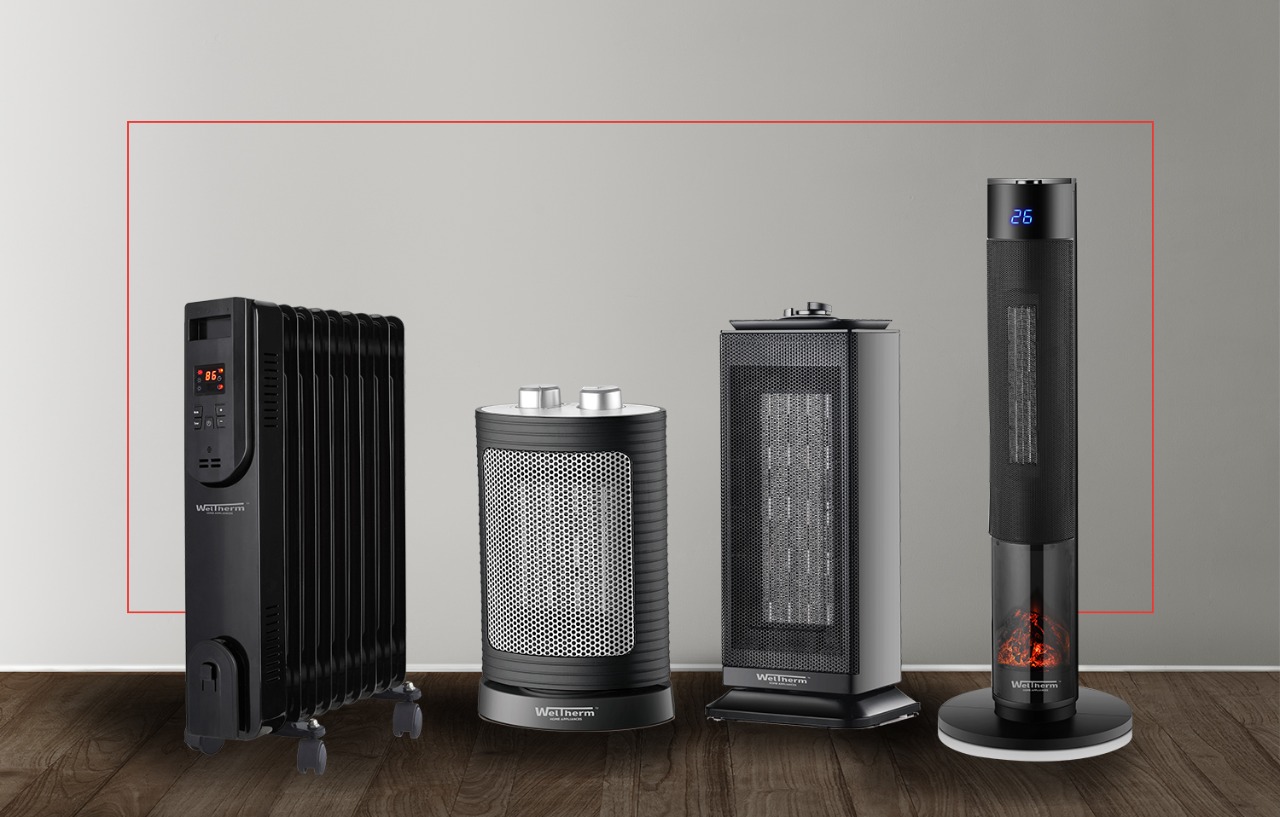Electric heaters are electric heating devices that are designed to take electrical energy as an input source of power and convert that energy into thermal energy for heating the air or objects in a given space. All electric heaters make use of one or more of the fundamental heat transfer mechanisms – namely convection, conduction, or radiation.
Electric heaters differ from other types of space heaters whose input power source is a combustible fuel (such as propane, natural gas, wood, or kerosene) in that heaters with combustible fuel sources require a vent to exhaust the gases that are generated from the combustion process safely outside of the area being occupied. The need to properly vent those units means that they are by design intended for permanent installation as opposed to being used as a portable space heater for temporary or intermittent use.
Electric heaters, by virtue of not requiring an exhaust vent, are the only unvented heater style that is safe to utilize in occupied spaces such as in a home or office. They are generally safe to operate but precautions need to be taken to reduce the risk of fires starting or burns occurring from accidental contact with the heating elements or hot surfaces of the electric heater. Care should be taken to position heaters away from flammable objects such as drapes or curtains, keep children away from contact with the heater, and to avoid the use of heaters while sleeping or when the area is unoccupied. Units with thermostats, sensors for overheat protection, cool-touch surfaces, and safety switches that shut the unit off in the event it is tipped-over, are also worth considering.
From a cost perspective, electric heaters are relatively inexpensive to purchase although they are typically more costly to operate when compared with combustion heaters, depending on the price of electrical power in the area and the utilization profile. Many electrical heaters are designed to supplement the primary heating system in a dwelling to boost the room temperature for a limited time or for specific needs such as for improving the comfort level of an elderly person who is sensitive to cold. There are some, however, which function as the primary heating system.
Generally, the term electric heater may refer to a heating apparatus designed to heat the air for comfort, or it may also apply to electric process heaters that are used in industrial settings. This guide will focus exclusively on the former case. For additional information about heaters used in industrial process applications, see our related Thomas Buying Guide on Types of Heaters.
Electric heater types
Electric heater types reflect a combination of the design as well as the application. The primary types of electric heaters in use include:
- Electric Fan Heaters
- Electric Infrared Heaters
- Electric Baseboard Heaters
- Kickspace Heaters
- Mica Heaters
- Ceramic Heaters
- Electric Fireplaces
- Electric Floor Heaters
- Electric Heat Pumps
- Electric Water Heaters


0 Comments